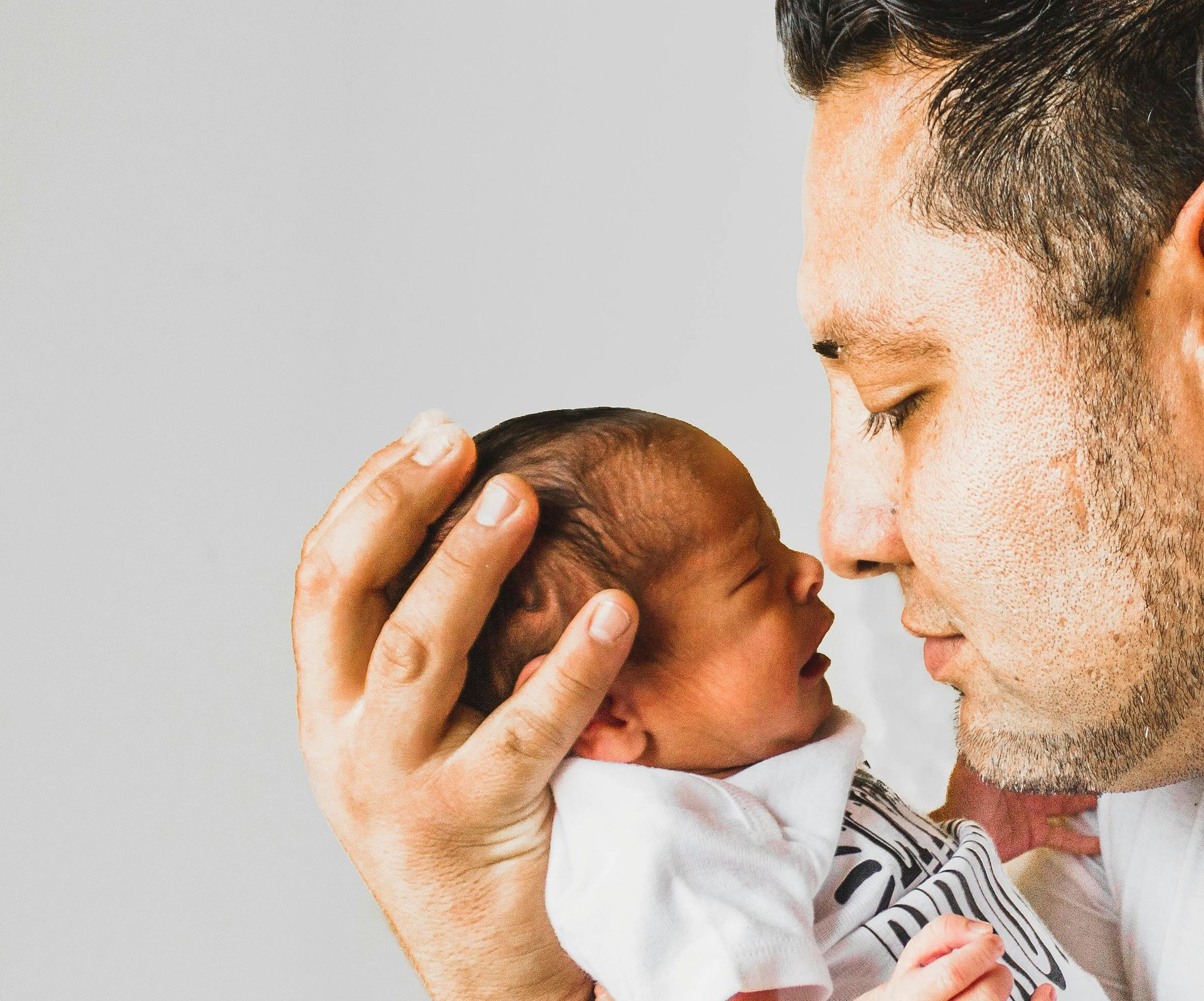Rachel Magin, PsyD • November 7, 2025
Postpartum anxiety is real. So is effective treatment.

Let’s get one thing out of the way: postpartum anxiety is real. It’s not just “new parent stress.” It’s not just “hormones.” And it’s definitely not something you should feel ashamed of.
If you’re reading this because you—or someone you love—is in the thick of it, please take a breath. You’re not alone, and you’re not broken. What you’re feeling is valid. And more importantly, there are proven, compassionate ways to feel better.
In this post, we’re going to talk about three powerful therapeutic approaches that can help reduce postpartum anxiety: Cognitive Behavioral Therapy (CBT), Emotionally Focused Therapy (EFT), and Acceptance and Commitment Therapy (ACT). These aren’t magic cures, but they are well-researched, meaningful paths forward—tools to help you feel more grounded, connected, and whole again.
What Is Postpartum Anxiety?
Most people have heard of postpartum depression, but
postpartum anxiety (PPA) is often misunderstood or completely overlooked. It affects an estimated
1 in 7 mothers and 1 in 10 dads, though that number may be higher due to underreporting.
Postpartum anxiety can look like:
- Constant worry that something bad will happen to your baby
- Intrusive thoughts that are scary or disturbing
- Difficulty sleeping—even when your baby is asleep
- Feeling on edge, irritable, or panicked
- A racing heart, upset stomach, or a sense of dread
- Feeling disconnected from your partner, your baby, or yourself
It’s overwhelming, disorienting, and isolating. And yet, many new moms and dads suffer in silence because they’re afraid of being judged—or worse, seen as unfit mothers.
But here’s the truth: you can love your baby and still feel anxious. Those two things can exist side by side. And they often do.
Why Therapy for Postpartum Anxiety Works
Therapy gives you a safe space to unpack what’s going on inside. It’s not about being “fixed”—it’s about being heard, understood, and supported as you navigate the postpartum period, one of the biggest transitions of your life.
Let’s explore how CBT, EFT, and ACT each offer unique ways of helping moms heal from postpartum anxiety.
1. Cognitive Behavioral Therapy (CBT): Challenging the Storm of Thoughts
CBT is often the first-line treatment for anxiety —and with good reason. It’s practical, structured, and rooted in the idea that our thoughts, feelings, and behaviors are interconnected.
What CBT for Postpartum Anxiety Looks Like
Imagine you’re constantly thinking, “If I fall asleep, something bad will happen to my baby.” That thought triggers anxiety, which leads to you staying up all night checking on your baby. You’re exhausted the next day, which feeds more anxiety—and the cycle continues.
CBT helps by breaking this cycle. It teaches you to:
- Identify distorted thoughts (e.g., catastrophizing, all-or-nothing thinking)
- Challenge those thoughts with evidence-based reasoning
- Replace them with more balanced, realistic ones
CBT also focuses on behavioral changes, like gradually reducing safety behaviors (e.g., checking the baby monitor every five minutes) and learning relaxation techniques.
Why It Helps
Many people with postpartum anxiety feel trapped in a loop of “what ifs.” CBT helps you step back and ask, “Is this thought helpful? Is it even true?” Over time, it empowers you to rewrite your internal narrative—to stop being your own harshest critic and start becoming your own ally.
2. Emotionally Focused Therapy (EFT): Healing Through Connection
While CBT focuses on thoughts and behaviors, Emotionally Focused Therapy (EFT) centers on your emotional world—especially your attachment to others.
EFT was originally developed for couples, but its principles are just as powerful for individuals, especially mothers and fathers navigating postpartum anxiety. It’s based on the understanding that emotional bonding is essential to our sense of safety.
What EFT Looks Like
Postpartum anxiety often brings with it a flood of difficult emotions: guilt, shame, fear, sadness. EFT helps you:
- Explore and name these emotions without judgment
- Understand the deeper needs behind those emotions (e.g., “I need to feel safe” or “I need to know I’m not alone”)
- Strengthen emotional connections with loved ones and yourself
In sessions, you may revisit key emotional experiences—maybe the birth didn’t go as planned, or maybe you feel unseen in your relationship. A skilled EFT therapist will guide you through these vulnerable places with warmth and compassion.
Why It Helps
EFT is deeply validating. It doesn’t rush to “fix” you. It says, “Of course you feel this way. Let’s sit with it together.” When you're able to feel your feelings (instead of fighting them), and when you can share those feelings safely with someone who cares—healing happens.
3. Acceptance and Commitment Therapy (ACT): Making Space for the Hard Stuff
ACT is a newer form of therapy that blends mindfulness, values, and behavioral change. At its core, ACT teaches you how to accept what’s out of your control, while committing to actions that align with your values.
Unlike CBT, ACT doesn’t ask you to change your thoughts. Instead, it teaches you to relate to them differently.
What ACT Looks Like
Let’s say you have an intrusive thought: “I’m a terrible mother.” ACT doesn’t argue with that thought. It says, “Okay, that thought showed up. Now what do you want to do next?”
ACT helps you:
- Notice your thoughts and feelings without getting hooked by them
- Practice mindfulness and present-moment awareness
- Clarify your values (e.g., love, connection, courage)
- Take small steps toward those values—even when anxiety is present
One key ACT tool is defusion—the practice of unhooking from painful thoughts. For example, instead of saying, “I’m failing,” you might learn to say, “I’m having the thought that I’m failing.” That little shift can create a lot of breathing room.
Why It Helps
Postpartum anxiety often brings a sense of being stuck—like you’re frozen in fear or drowning in shame. ACT reminds you that you can feel anxiety and still choose your path. It doesn't promise to make hard feelings disappear, but it does offer the tools to carry them with more grace.

Putting It All Together: A Compassionate Path Forward
You don’t have to choose just one of these therapies. Many therapists, including several at Aviva Psychology Services, integrate elements of
CBT, EFT, and ACT depending on your unique needs. Some parents respond well to CBT’s structured approach. Others need the deep emotional work of EFT or the mindful acceptance of ACT.
The beauty of therapy is that it’s
not one-size-fits-all. It’s tailored. It’s relational. It meets you where you are.
And most of all, it’s a process. Healing doesn’t happen overnight. There will be steps forward and steps back. But with the right support, you will begin to feel more like yourself again—maybe even a fuller, more compassionate version of yourself than before.
You Are Not Alone
If you’re struggling with postpartum anxiety, please know:
- You are not a bad mother or father.
- You are not weak.
- You are not alone.
There is help, and there is hope.
Therapy isn’t about getting rid of anxiety forever. It’s about learning how to
live with it, respond to it, and move forward anyway. Whether through CBT, EFT, ACT, or a blend of all three, there is a path through this. And on that path, there are people ready to walk with you.
So if you’ve been waiting for a sign to reach out, this is it. Talk to a therapist. Talk to your partner. Talk to your doctor. Talk to someone.
You don’t have to do this alone.
Resources
- Aviva Psychology Services: Our dedicated team of psychologists are trained to provide services like CBT, EFT, and ACT for postpartum anxiety. You can initiate services with Aviva by filling out the
Request an Appointment form.
- Postpartum Support International (PSI): PSI offers free helplines, therapist directories, and online support groups
You are worthy of care. You are allowed to struggle. You are allowed to heal.
From one human to another: hang in there. You’re doing better than you think.
SHARE THIS POST:
Our Recent Posts:







